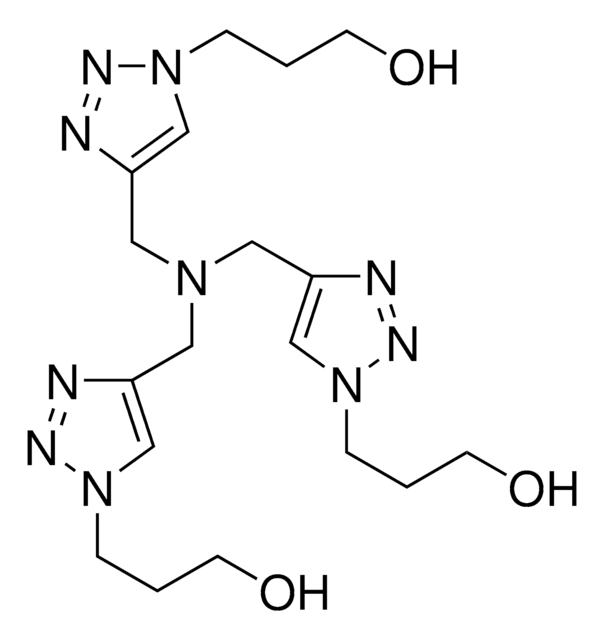203165
Copper(II) sulfate pentahydrate
99.999% trace metals basis
Synonym(s):
Cupric sulfate pentahydrate, Sulfuric acid, copper(II) salt (1:1) pentahydrate
About This Item
Recommended Products
vapor pressure
7.3 mmHg ( 25 °C)
Quality Level
Assay
99.999% trace metals basis
form
crystals and lumps
impurities
≤15.0 ppm Trace Metal Analysis
mp
110 °C (dec.) (lit.)
application(s)
battery manufacturing
SMILES string
O.O.O.O.O.[Cu++].[O-]S([O-])(=O)=O
InChI
1S/Cu.H2O4S.5H2O/c;1-5(2,3)4;;;;;/h;(H2,1,2,3,4);5*1H2/q+2;;;;;;/p-2
InChI key
JZCCFEFSEZPSOG-UHFFFAOYSA-L
Looking for similar products? Visit Product Comparison Guide
Related Categories
General description
Application
- Chemical Synthesis: Synthesis and characterization of a new copper(II) chelate complex, exploring the crystal and molecular structure of aqua-(diethylenetriamine-N,N′,N′′)-copper(II) sulfate monohydrate (Lavrenyuk et al., 2015).
- Material Science: Use of copper(II) sulfate pentahydrate in the dissolution of malachite ore and precipitation of copper sulfate pentahydrate crystals, highlighting a method for copper recovery (Kokes et al., 2014).
- High-Pressure Studies: Application of high-pressure techniques to study the structural changes in copper sulfate pentahydrate, using a miniature diamond-anvil cell (Novelli et al., 2022).
Signal Word
Danger
Hazard Statements
Precautionary Statements
Hazard Classifications
Acute Tox. 4 Oral - Aquatic Acute 1 - Aquatic Chronic 1 - Eye Dam. 1
Storage Class Code
13 - Non Combustible Solids
WGK
WGK 3
Flash Point(F)
Not applicable
Flash Point(C)
Not applicable
Personal Protective Equipment
Regulatory Listings
Regulatory Listings are mainly provided for chemical products. Only limited information can be provided here for non-chemical products. No entry means none of the components are listed. It is the user’s obligation to ensure the safe and legal use of the product.
PDSCL
Deleterious substance
PRTR
Class I Designated Chemical Substances
ISHL Indicated Name
Substances Subject to be Indicated Names
ISHL Notified Names
Substances Subject to be Notified Names
JAN Code
203165-50G:4548173114033
203165-VAR:
203165-10G:4548173114026
203165-BULK:
Choose from one of the most recent versions:
Already Own This Product?
Find documentation for the products that you have recently purchased in the Document Library.
Customers Also Viewed
Our team of scientists has experience in all areas of research including Life Science, Material Science, Chemical Synthesis, Chromatography, Analytical and many others.
Contact Technical Service






